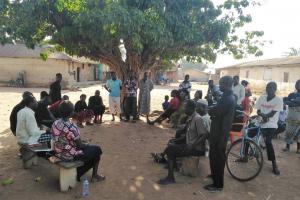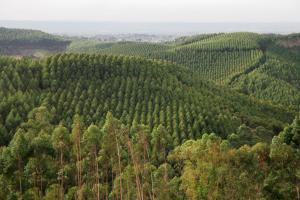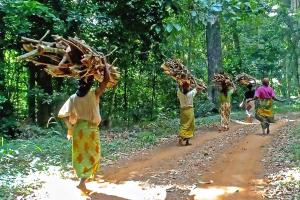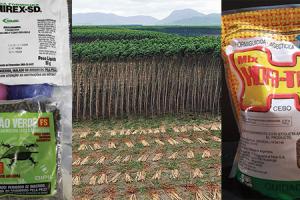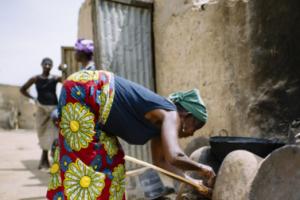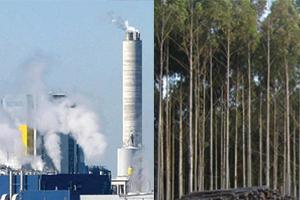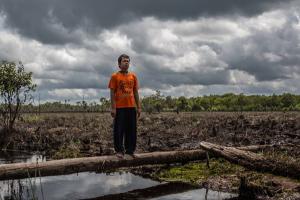This editorial aims to raise a high alert with regard to the corporate agendas that dominate international forest-related processes, which appear to be entering new phases. The decisions taken have very real impacts on forest communities.
Large-Scale Tree Plantations
Industrial tree plantations are large-scale, intensively managed, even-aged monocultures, involving vast areas of fertile land under the control of plantation companies. Management of plantations involves the use of huge amounts of water as well as agrochemicals—which harm humans, and plants and animals in the plantations and surrounding areas.
Bulletin articles
5 March 2020
The Norwegian company APSD is establishing industrial eucalyptus plantations in Ghana for biomass fuel, which is considered a "carbon neutral" fuel. The Youth Volunteers for the Environment in Ghana spoke with communities affected by these plantations.
Bulletin articles
5 March 2020
What are the experiences of communities living inside or adjacent to the plantation areas of companies with “zero deforestation” pledges? How can these companies continue expanding without deforesting in densely forested countries?
Bulletin articles
5 March 2020
After more than 50 years of struggle by peasant communities who have faced all kinds of environmental and social destruction, the highest court of Cauca Valley has ruled against the industrial plantation company, Smurfit Kappa Cartón Colombia.
Bulletin articles
5 March 2020
Plantation companies often argue that local populations are destroying the forests, particularly where people depend on firewood and/or charcoal for their energy needs. Thus, they argue, industrial plantations can “sustainably” provide this wood. But this is simply not true.
Bulletin articles
5 March 2020
One of the latent dangers that comes with the establishment of monoculture plantations—which is generally invisible—is the high use of agrochemicals. Agrochemicals support profits for plantation companies and their financiers, while poisoning life.
Other information
5 March 2020
The September 2019 Forest Cover newsletter from the Global Forest Coalition focuses on the bioenergy developments and use in West Africa and how they are impacting women and forests. From bioenergy produced in large-scale, requiring huge areas of land to provide the raw materials, to the ubiquitous household and community-scale energy needs, where wood is collected mainly by women. Clean cookstove projects are increasingly being tied to commercial tree plantations that produce “clean charcoal”, and eucalyptus trees are being planted on a large-scale purely to burn in a power station.
Other information
5 March 2020
Social organizations from Uruguay, Finland and other countries, together with well-known professionals, presented the results of scientific research carried out over the past 15 years on the impacts of monoculture tree plantations on grasslands, refuting the "green washing" of UPM company, which presents itself as a leading global corporation in the fight against climate change, the defense of biodiversity and the sustainable water management.
Other information
5 March 2020
Other information
5 March 2020
On January 2020, the Dutch National Contact Point for the Organization of Economic Co-operation and Development (OECD) declared a complaint from three Friends of the Earth groups (Milieudefensie -Netherlands, SDI -Liberia and WALHI -Indonesia) against the ING bank, admissible.
Action alerts
3 March 2020
Tell Green Climate Fund Board Members to say NO to funding requests that promote monoculture tree plantations and, in particular, the funding request of the Arbaro Fund for its so-called “Sustainable Forestry Fund”.
3 March 2020
Tell Green Climate Fund Board Members to say NO to funding requests that promote monoculture tree plantations and, in particular, the funding request of the Arbaro Fund for its so-called “Sustainable Forestry Fund”

